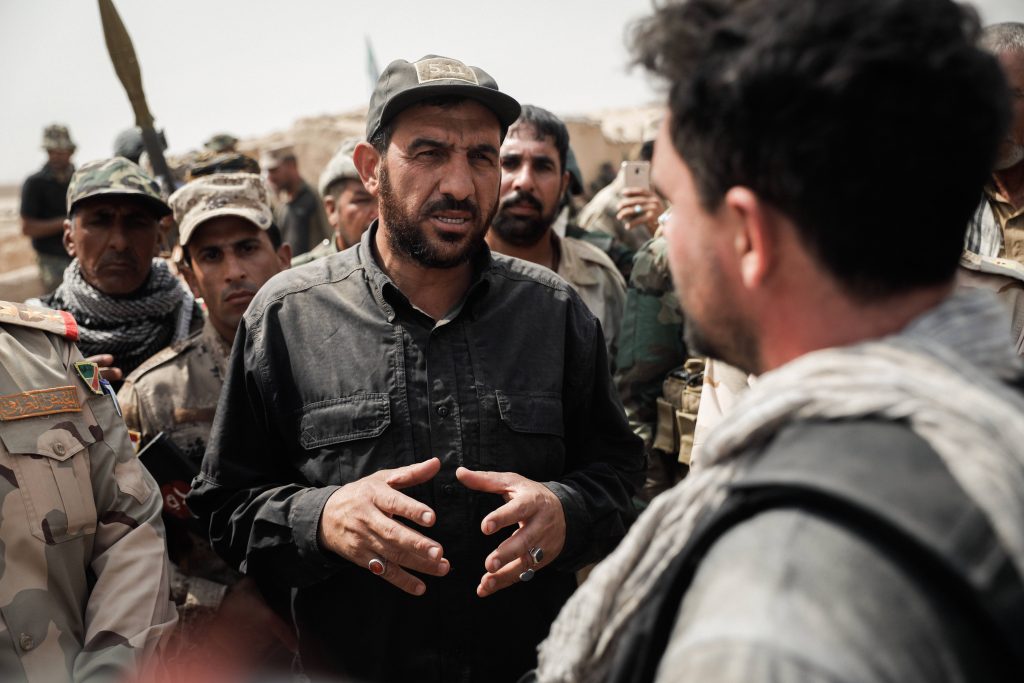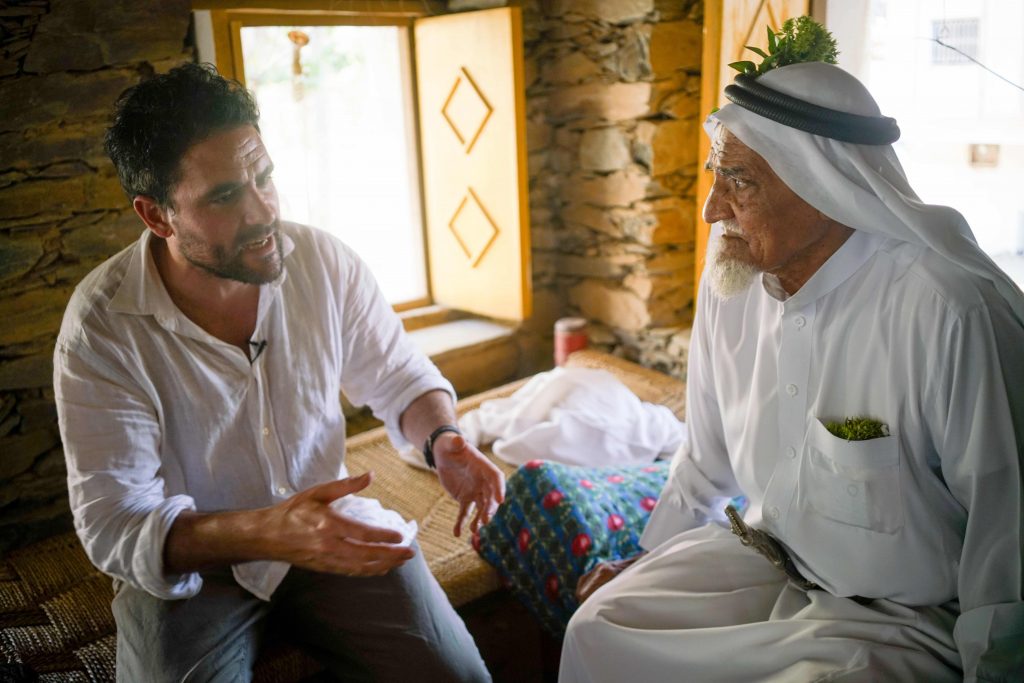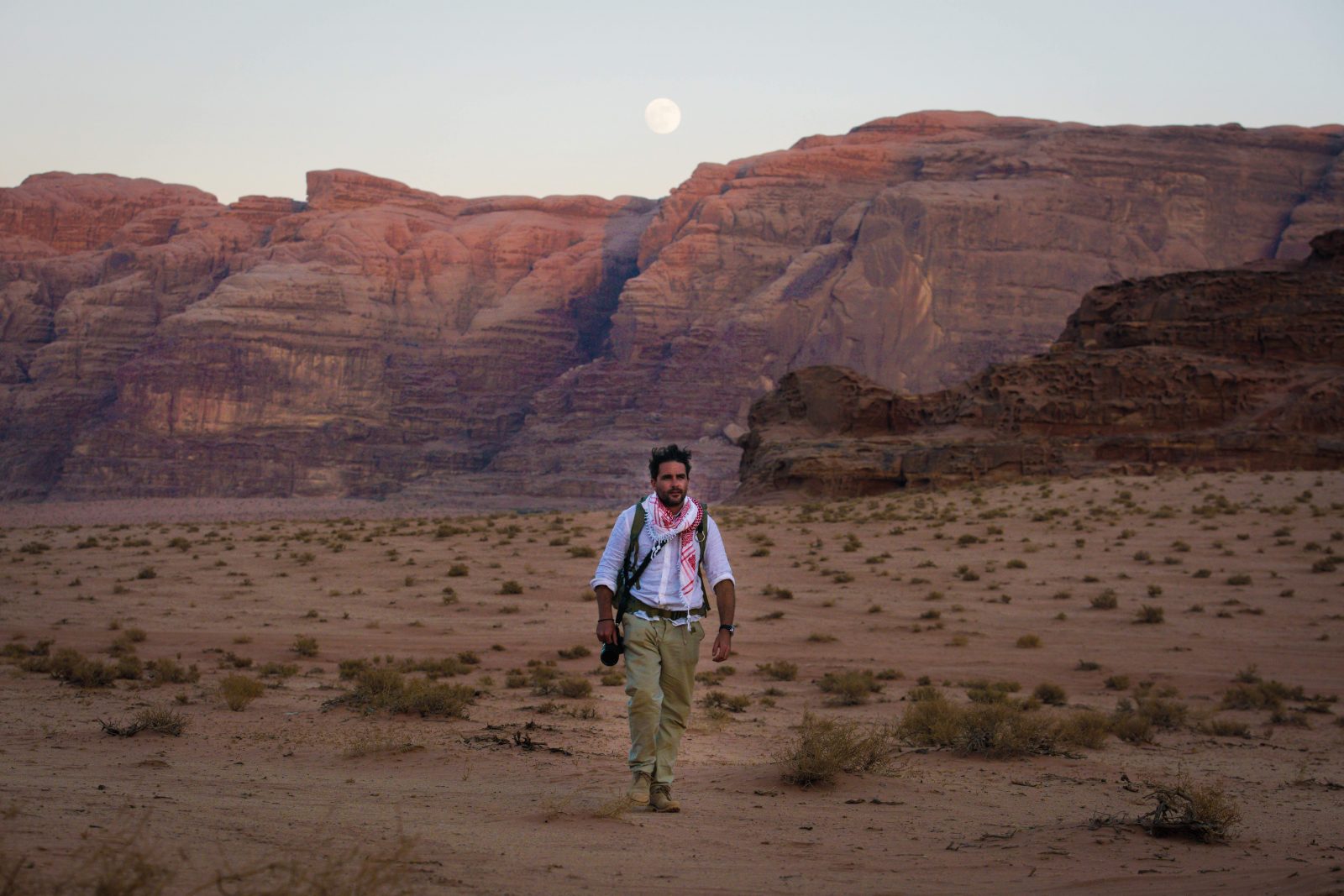Most of you will know British explorer, writer and photographer Levison Wood for his incredible adventures around the world documented in his many hit TV series’ and award-winning books. Some of his achievements include walking the length of the river Nile – an expedition of 4,250 miles – over the course of nine months from 2013-2014.
In 2015, he walked the length of the Himalayas, a six-month journey of over 1700 miles from Afghanistan to Bhutan. He’s also traveled the length of Central America from Mexico to Colombia (1800 miles), including the notorious Darien Gap.
Levison’s latest expedition, his most ambitious to date, is a 5000-mile circumnavigation of the Arabian peninsula from Iraq to Lebanon. It was a gruelling journey traveling through 13 different countries, where he stood on the front line, coming under fire from ISIS forces and immersed himself in the lives of locals in a bid to challenge the myths and stereotypes that plague the Middle East.
We caught up with Levison ahead of the premiere of his series on Discovery UK (Thursday, 9pm) to tell us all about his latest and greatest adventure to date.
The MALESTROM: Can you tell us what your new Discovery UK series is all about?
Levison Wood: Well, really it’s a look at the Middle East and the Arabian peninsula in a way that I don’t think has ever been done before. For me, it was the expedition of a lifetime and I’ve done a lot of expeditions. But this was really going on an adventure, going and undertaking this journey by any means, because it was walking, by camel, by tank or whatever. So traveling with the locals and seeing what the truth of how life really is for the normal people there.
In episode one we’re in at the deep end, into the conflict zone of Northern Iraq, but also I think you get an idea of the balance of life there, the amazing isolated communities like the Marsh Arabs, who actually aren’t interested in war, they just want to get on with their normal lives.
So that’s what it’s all about and it’s a theme that continues throughout the journey, it’s a real diverse show and I think what people will get out of it is the sense of wonder, learning something new.
TM: Just looking at that first episode, even the military safehouse looked pretty scary, but coming under fire from ISIS forces must have been a heart in mouth experience?
LW: Yeah, I mean there were lots of moments like that. Obviously, what you saw there was several days of pretty intense fighting condensed down, but when that happens and you do get ambushed by ISIS, for me it was a case of going into the automatic mode of what do I do in this situation? I’m in this situation and you just deal with it. Luckily I was on the winning side.

TM: You’ve seen war first-hand before. How different was this experience? Obviously, you were there as a journalist rather than a soldier.
LW: I’ve seen action in Afghanistan and a few other places, but this was different. When you go there, you’re not armed, you’re basically with a ragtag group who aren’t soldiers, they’re just civilians who’ve been given arms. You don’t have any medical support, you’re not going to get extracted if you get into trouble.
So it’s a different kettle of fish. But that said we still had a big convoy of helicopters and tanks and all the rest of it, so you hope you’re going to win with all that.

TM: Did you feel much hostility aimed at yourself during the time there? Or were people generally pretty easy to deal with?
LW: The vast majority of people were very hospitable. I found that people throughout the region were quite surprised I was there and surprised that I was actually asking them for their side of the story. As a result, people looked after me and took me into their homes and fed me. The real reason I was there was to show that hospitality.

TM: What surprised you most from your travels over there?
LW: It was probably that, the sense of hospitality. The fact you can go anywhere – and it’s not like you can just go on Booking.com and book accommodation in the desert – but you’re still able to find people who will take you into their homes and look after you and didn’t want anything in return. That was really humbling.
TM: One of the worst parts must have been seeing all the destruction, such as in places like Mosul?
LW: It’s heartbreaking to see the scenes of destruction in cities like that and you hear the stories of devastation and poverty, especially in Yemen where there’s an ongoing civil war that people never get to hear about because it’s never in the news. So I felt part of the responsibility was to shine a spotlight on that and tell people a bit about what’s going on.

TM: It seems like you met plenty of really interesting characters along the way…
LW: There were loads. One of my favourite people was a guy called Michelle who was a Bedouin nomad who lived in the desert in Jordan. He lived in a cave, born and brought up in a cave. And yet he came with me for two weeks across the desert, he was just brilliant. So you’ll get to see a lot of characters like that.
TM: The Middle East is called the cradle of civilisation. Were there any ‘wow’ moments at things you saw?
LW: So many, so many. Going to Laurence of Arabia’s train that he blew up a hundred years before, that was a real highlight. I’m a real history buff, so to go and find that train that was still there in the desert was mind-blowing.
TM: People have preconceived ideas about the Middle East. You’re looking to shed a different light with this programme and perhaps open people’s minds up.
LW: Exactly. I think that’s what it’s all about, an opportunity to show a bit of humanity, to hopefully challenge some pre-conceived ideas and people I think will come away thinking, ‘I didn’t realise that about this region’.
TM: Do you think it’s been one of your most ambitious expeditions?
LW: This expedition took the best part of two years to plan, just getting the visas – it was touch and go for four or five countries whether we would even get in. It was incredibly challenging, I certainly challenge anyone else to give it a go that’s for sure.
Physically I was walking across the desert, it was definitely tough, very, very tough. But the biggest challenges were political and inevitably usually are.

TM: One of the episodes where you were traveling in Lebanon saw a fairly significant issue didn’t it?
LW: Yeah. Going over the mountains there right at the end we went from Hezbollah territory into the Christian area. It’s a very complicated country, what I wasn’t expecting was that the high passes were covered in snow, literally two to three metres, so we had to battle through a major snow drift and blizzards at the end of the journey which I certainly wasn’t prepared for because I had desert boots on which wasn’t great.
TM: What was your big takeaway from the whole experience?
LW: I think it’s probably a case of, it’s a very complicated region. It’s a part of the world we often get a bit bored of hearing about when it’s all bad news, so I think it’s important to hopefully take away that’s it’s not all bad news.
There are lots of issues there and your certainly not glossing over the fact that there is a lot of conflict and tragedy, but ultimately there are lots of normal people there getting on with their lives and that’s just as important to show as well.

TM: What sparked that initial flame of adventure inside of you?
LW: I think it was reading actually. Probably reading books about other people’s adventures. I grew up with a thirst for adventure having read the likes of Shackleton, Captain Scott and David Livingstone. Hearing stories of people hacking through jungles and climbing up mountains, all of that really inspired me to do my own trips.
I started pretty humbly, walks across The Peak District and I went on a gap year like other kids and one thing led to another. The army obviously was very helpful to me in giving me the opportunity to go all over the world, but really it was just my own curiosity.
TM: Was the army a good jumping-off point for when you did leave to go into adventuring?
LW: Definitely. The army not only gives you the skills, the experience and the confidence but also a good network of people as well. People you can call upon to help you out, put you in touch with the right people to sort out your needs in different countries. All those factors combined, I think it would have been very difficult to do this journey particularly had I not been in the army.
TM: A lot of the adventures we’ve seen from you has been on foot. Do you think that form of travel leaves yourself more open to meeting more interesting people?
LW: For me with these journies, I’m not too bothered about breaking records and things like that, it’s just a good way of forcing yourself to interact with people. If you’re whipping by in a car at a hundred miles an hour you don’t meet the normal people on the ground.
Whereas if you leave yourself open to chance then you do. So for me whether it’s walking or hitchhiking that’s great because you get to meet normal people. And also you’re forcing yourself to think on your feet, you haven’t always got a get-out clause.
TM: I’m sure the majority of people are friendly, but if you do encounter people who are slightly hostile, how do you typically deal with that situation?
LW: I’ve met slightly hostile people in London frankly. That’s not specific to any region, it’s usually common sense and treating people like people and with respect, that’s it really. I mean there are little tricks.
Depending on the situation, but I always carry a packet of cigarettes, not because I smoke, but because it breaks the ice a bit, especially if you’ve got someone with a gun who’s getting a bit angry, it can diffuse the tension a bit. There are a few tricks of the trade, but generally, it’s common sense.
TM: What’s the most dangerous situation you’ve found yourself in? It’s maybe not something involving people?
LW: No. It’s always with people. Wildlife is fairly predictable. There are moments where you’re getting chased by a hippo, an elephant or a crocodile, and that’s pretty scary, but at least you can generally predict how their behaviour is going to work, whereas people when they’ve had a couple of drinks, you can’t.
So most of the dangerous situations have been involving people, whether that might be police roadblocks in Iraq, where you don’t know what side they’re on. Or going through Syria, when your car breaks down in a warzone you sort of think, ‘this is bad’.

TM: You must have seen some incredible wildlife on your journies?
LW: Absolutely. Going out into the wilderness you get to see some amazing wildlife. In the Middle East, it was mainly snakes and camel spiders (laughs), so less so on this one. I’m passionate about conservation so it’s a good way of encouraging more people to learn about what we’re doing to our planet.
TM: How do you prepare mentally for your adventures? Obviously, you need physical fitness but you have to have your head right also…
LW: Actually it’s the bigger preparation because the physical side you can do on the job so to speak. If you’re going for a nine-month walk which I did with the Nile, then there’s not really much point in training for four months beforehand, you start gently and work your way into it.
It’s more about making sure you’re settled and everything’s in order before you set off, cause the last thing you need to remember a week in is you’ve left the oven on or something like that. It’s really just about getting all your ducks in a row before you set off, and that goes not only for your Council Tax bill but also making sure you can do everything you can to keep in touch with your friends and family.
TM: If you could pick someone dead or alive to accompany you on an adventure who might that be?
LW: That’s a good question. I would have loved to have travelled with Richard Burton, he was the Victorian explorer who spoke 27 languages and was an absolute genius. His sense of adventure was something that I certainly aspire to. And I’m sure he would have got us both in and out of some tricky situations.
TM: Is there one destination you’d urge others with a sense of adventure to visit?
LW: Well from this journey I’d definitely encourage people to go to Jordan. It’s absolutely beautiful, the people are friendly and it’s a really accessible part of the Middle East. If you want to go to the Middle East and know your totally safe then go to Jordan.
TM: What one item do you value on your travels over every other?
LW: Obviously it depends on the situation, where you’re going, the environment, etc. But I always take a white linen shirt, because it’s important to sometimes look smart.
Even if you’re in the jungle or the desert or wherever, I’m always getting stopped at roadblocks and invited by the local governor for tea, when I was in the Himalayas I got invited to see the Dalai Lama. Sometimes the jungle rags just won’t do and you have to put on something semi-smart. So I always have a clean shirt with me.

TM: It must be hard to look too far ahead after a trip like Arabia, but do you have anything planned for the near future?
LW: I’ve got a few ideas in the pipeline that’s for sure. I think for now I’m just enjoying the fact I’ve finished this journey and I’ve got a few books in the pipeline, but I’m going to put my feet up for a little bit before heading out again.
TM: We always like to finish with a piece you might have gleaned from your career if anything springs to mind?
LW: I think for me one of the biggest things I’ve learned from all these travels is the art of patience, because when your walking for months and months there’s no point in getting yourself in a tizz over the little things. So for me, it’s about trying to enjoy the moment and not worry too much about what might happen in the future.
Arabia With Levison Wood will premiere exclusively in the UK on Discovery Channel, 9pm, Thursday 27th June (Sky 125).
Click the banner to share on Facebook



